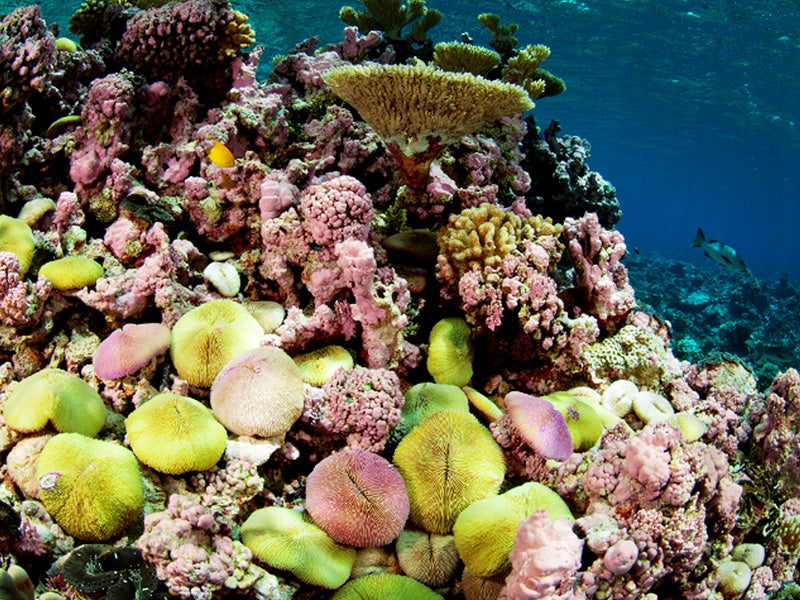Friday Finds: Obama Combats Climate Change by Land, Air and Sea
Obama proposes a vast expansion of a Pacific Ocean marine sanctuary.

This page was published 11 years ago. Find the latest on Earthjustice’s work.
President Obama is on a bit of an environmental kick lately.
Just a few weeks ago, he proposed regulating carbon pollution from new power plants. This is a huge step forward in lowering greenhouse gas emissions in the air, which will then have major implications on the ground. The proposal needs to be stronger, be even as is it will generate tens of thousands of jobs and an estimated $93 billion in health and climate benefits.
This week, President Obama one-upped himself by announcing a plan to create the nation’s largest-ever marine sanctuary, located in the central part of the Pacific Ocean. Under the proposal, the Pacific Remote Islands Marine National Monument will be expanded from 87,000 square miles to nearly 782,000 square miles, reports the Washington Post. Described as “the closest thing ever seen to a pristine ocean” by Nat Geo explorer-in-residence Enric Sala, the area boasts nearly two-dozen species of marine mammals, five types of threatened sea turtles and a variety of sharks and other predatory fish s.
These two proposals couldn’t have come at a better time. (Well, they could have come earlier, but I digress). Both proposals will go a long way in combatting climate change on multiple fronts. The first proposal, especially if it’s strengthened, is about the future, reducing carbon emissions to slow future warming and sea level rise. The second proposal is geared more towards easing the impacts of climate change that are happening now, like ocean acidification, which is destroying coral reefs and marine organisms with calcium carbonate shells (think oysters and clams). The proposal declares the area off-limits to fishing, energy exploration and other harmful activities, which allows marine species time to bounce back from the battering of these stressors.
The United States governs more of the sea than any other country, so it’s a big deal that Obama is finally making a real commitment to marine issues. But we’re not the only ones making waves. In February, the President of Palau declared some 200 miles around his Pacific Island country a marine sanctuary, making it off-limits to all commercial fishing. Small-island developing states like Palau are on the front lines of climate change impact, and for years, Earthjustice has been supporting Pacific Small Island Developing States and other nations in pressing governments to increase cooperation and action on oceans. In addition, the small island nation of Kiribati recently announced that it will close an area roughly the size of California to commercial fishing by the end of the year.
Upon making the announcement, the President of Palau pointed out that 20 years ago he along with small island countries warned that they were the window of what would eventually happen to the rest of the world. After 20 years of neglecting the signs, we are finally beginning to answer the climate’s stress call.
The International Program partners with organizations and communities around the world to establish, strengthen, and enforce national and international legal protections for the environment and public health.
Established in 1988, Earthjustice's Mid-Pacific Office, located in Honolulu, Hawaiʻi, works on a broad range of environmental and community health issues, including to ensure water is a public trust and to achieve a cleaner energy future.